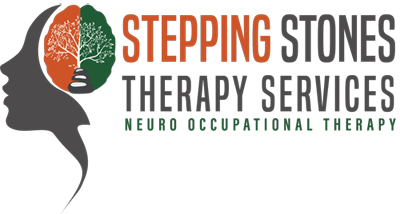Returning to work after illness, injury or a diagnosis can feel daunting, especially when your condition isn’t visible. Many people live with hidden disabilities that affect how they think, feel or work, even if others can’t see it.
Conditions like fatigue, anxiety, brain injury or sensory issues can make work harder in ways others may not understand. But you’re not alone — and support is available.
At Stepping Stones, I help people plan a return to work that feels safe, realistic and right for them. Here’s a simple guide to help you get started.
What Is a Hidden Disability?
A hidden disability is a condition that affects your ability to work but may not be visible. This includes:
- Mental health conditions like anxiety or depression
- Neurological conditions, including brain injury or fatigue
- Sensory impairments such as hearing loss
- Long-term health conditions and chronic pain
- Learning differences like dyslexia
If your condition has a lasting impact on daily life, it’s likely covered under the Equality Act 2010 — which means you have protection from discrimination and the right to reasonable adjustments at work.
1. Understand Your Rights
If you’re classed as a disabled person under the Equality Act, your employer must:
- Make reasonable adjustments
- Prevent discrimination, harassment or victimisation
- Support you fairly during recruitment, absence or job changes
These rights apply whether you’re an employee, trainee, worker or applying for jobs.
2. Create a Personalised Return Plan
No two returns are the same. Through my work at Stepping Stones, I help people return gradually and safely, whether that’s shorter hours, adapted duties or building confidence after time away.
A good plan may include:
- A phased return or flexible working
- Clear communication with your manager
- Support with energy levels, focus or routines
3. Know What You Need Day to Day
Start with what’s hardest right now. You might need:
- More time for complex tasks
- Regular breaks
- Help remembering things
- Adapted equipment or routines
Identifying what gets in your way helps remove barriers and opens the door to better support.
4. Ask for Reasonable Adjustments
Reasonable adjustments are changes to your job or work setup that help you do your role without being disadvantaged. These could include:
- Changing your hours
- Allowing home working
- Adjusting targets
- Providing quiet space or support tools
You don’t need to explain your whole condition, just what’s needed to do your job well.
5. Apply for Access to Work
Access to Work is a government service that can help with extra support, including:
- Specialist equipment
- Travel to work if public transport isn’t suitable
- A support worker
- Help with mental health
You can apply directly or ask your local Jobcentre for help.
6. Talk to Your Employer — When You’re Ready
It’s your choice if and when to talk about your condition. When you do, focus on what helps you work best. This could mean:
- Sharing specific difficulties (e.g. memory, fatigue)
- Suggesting adjustments
- Asking for support in writing
You can bring someone with you, like a union rep or friend, if that feels easier.
7. Know the Signs of Discrimination
You’re protected from:
- Direct discrimination (treated unfairly because of your condition)
- Indirect discrimination (rules that exclude or harm you unfairly)
- Harassment or victimisation for speaking up
If you experience unfair treatment, you can:
- Ask for reasons in writing
- Raise a concern informally
- Make a grievance
- Seek outside advice from Acas or disability support services
8. Support Your Mental Health at Work
Managing work with a mental health problem can be exhausting. If your condition affects your ability to do your job, you have the same legal rights as with any other disability in the workplace.
Support could include:
- Adjusting how feedback is given
- Allowing quiet time or space
- Access to counselling or mental health support
You deserve a workplace that supports your wellbeing.
9. You Are Not a Burden
Asking for help doesn’t make you less capable. Many organisations value lived experience and are working to build more inclusive environments.
You bring value, insight and ability — and support is a way to help you thrive, not just survive.
10. Get Help Planning What’s Next
If you’re unsure where to start, you don’t have to figure it out alone. I work with adults at all stages, from early recovery to navigating recruitment, interviews or workplace change.
At Stepping Stones, I can support you with:
- Liaising with employers
- Planning a phased return
- Recommending adjustments
- Building confidence after absence
- Preparing for job roles or interviews
Let’s Talk
If you’re returning to work with a hidden disability, you don’t have to do it alone.
I offer a free 15-minute consultation to talk through your situation and explore what might help, gently and at your pace.

